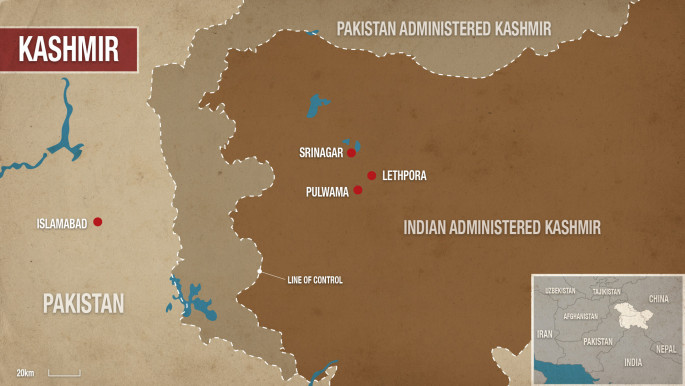India's lower house set to ratify bill, splitting Kashmir and turning India into 'occupation force'
India's lower house of parliament is due to ratify a bill that would downgrade the governance of India-administered Kashmir, with the Muslim-majority region under lockdown following an explosive government move to revoke its special autonomy.
The Lok Sahba will vote on the "Jammu and Kashmir Reorganisation Bill" on Tuesday, a day after the measure was introduced alongside a presidential order dissolving a constitutional provision that gave Kashmiris exclusive, hereditary rights.
Security in Kashmir has been tightened in advance of the measures to prevent protests.
The lower house is expected to easily ratify the bill downgrading Kashmir from a state to a union territory with a legislature and carving out the Ladakh region as its own union territory without a legislature.
Parliament's upper house approved the bill with a two-thirds majority, with many opposition lawmakers voting with the ruling Hindu-nationalist Bharatiya Janata Party.
|
Meanwhile, Indian authorities say they have detained three political leaders in Kashmir because they are a threat to peace.
The three were moved to an official guest house on Monday, according to a court order.
"Your activities are likely to cause breach of peace keeping into consideration your recent activities that may likely lead to a serious law and order situation," said the order that allowed the transfer, which was obtained by AFP on Tuesday.
Former chief ministers Mehbooba Mufti and Omar Abdullah, along with regional party leader Sajad Lone, had initially been placed under house arrest on the weekend as a huge security clampdown was put into force ahead of the controversial decree.
'Occupation force'
Kashmir remained virtually cut off from the outside world for a second day Tuesday with phone and internet links cut and thousands of troops enforcing a curfew.
The order also said authorities feared the trio would organise a public rally which is currently banned in Kashmir as part of the emergency lockdown.
Before being moved, Mufti took to Twitter to say that ending Kashmir's special status had reduced "India to an occupation force in Jammu and Kashmir".
Monday's decree, rushed through by Prime Minister Narendra Modi's Hindu nationalist government, removed from the constitution the special status that Kashmir had held since India's independence in 1947 when the region was divided between India and Pakistan.
The changes ended special privileges for Kashmiris in regards to owning property and reserved jobs.
Pakistan, India's nuclear-armed neighbour with which it has fought two wars over Kashmir, immediately condemned the move.
"Pakistan will exercise all possible options to counter the illegal steps," its foreign ministry said in a statement on Monday.
The announcement also sparked chaotic scenes in India's parliament on Monday, with the main opposition Congress party describing it as a "catastrophic step".
On Tuesday few Indian newspapers questioned the revocation, though many raised fears about the way it was carried out.
"There is no parallel in the history of independent India for the secrecy and stealth deployed by the government to bring in something which is politically and communally contentious," said the Indian Express.
 |
Follow us on Twitter: @The_NewArab



